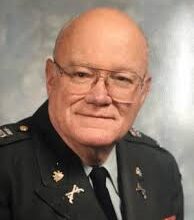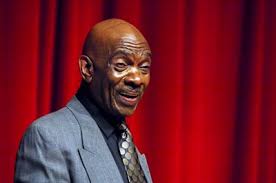Cornelius Vanderbilt Crane: The Adventurous Explorer and Philanthropist
Unveiling the Legacy of Cornelius Vanderbilt Crane

Cornelius Vanderbilt Crane (1905–1962) was a remarkable American figure whose adventurous spirit and philanthropic contributions left an indelible mark on history. Best known for his daring exploration journeys and support for natural sciences, Crane’s life was a testament to curiosity, generosity, and the pursuit of knowledge.
Early Life and Family Legacy
Born on June 29, 1905, in Chicago, Illinois, Cornelius Vanderbilt Crane was the son of Richard Teller Crane Jr. and Florence Higinbotham Crane. His paternal grandfather, Richard T. Crane, was the founder of Crane Co., a leading industrial products company, establishing the family’s legacy of innovation and entrepreneurship. On his maternal side, his grandfather was Harlow Niles Higinbotham, a distinguished businessman and philanthropist.
Growing up in a privileged household, Crane received a world-class education and was instilled with a strong sense of curiosity and adventure. Despite his affluent upbringing, he sought to make a meaningful impact on the world through exploration and philanthropy, ensuring his family’s influence extended beyond business.
The Crane Pacific Expedition: A Landmark Adventure
Cornelius Vanderbilt Crane’s most notable achievement was the Crane Pacific Expedition of 1928–1929. This ambitious journey, funded by Crane himself, aimed to explore uncharted territories and collect specimens for the Chicago Museum of Natural History. Aboard his luxury yacht, Illyria, Crane and his team of scientists embarked on a voyage that spanned the globe.
The expedition began in Boston Harbor on November 16, 1928, and included stops in Haiti, the Panama Canal, the Cocos Islands, the Galapagos Islands, and the South Pacific. Along the way, the team collected invaluable samples of local flora, fauna, and marine life. These contributions enriched the museum’s collections and advanced the scientific community’s understanding of biodiversity.
Crane’s leadership and vision were instrumental in the success of this expedition. He not only financed the journey but also ensured it adhered to rigorous scientific standards. The Crane Pacific Expedition remains a shining example of how private funding and passion can propel scientific discovery.
Philanthropy and Contributions to Natural Sciences
Beyond his expeditions, Cornelius Vanderbilt Crane was deeply committed to philanthropy. He supported various scientific and cultural institutions, leveraging his wealth to promote education and research. His contributions to the Chicago Museum of Natural History were particularly significant, enabling the institution to expand its reach and impact.
Crane’s philanthropic efforts extended to other areas as well, including the arts and community development. His vision was not limited to personal achievements but encompassed a broader goal of uplifting society through knowledge and cultural enrichment.
Personal Life: Connections to Prominent Figures
Cornelius Vanderbilt Crane’s personal life was as intriguing as his professional endeavors. In 1929, he married Cathalene Isabella Parker Browning, and during their marriage, he adopted her daughter, Cathalene Parker Browning. This familial connection made Crane the adoptive grandfather of actor and comedian Chevy Chase, whose real name, Cornelius Crane Chase, pays homage to his lineage.
Although Crane and Cathalene divorced in 1940, his legacy continued to influence future generations. In 1955, he remarried Minescule “Miné” Sawahara in a traditional Shinto ceremony in Japan, reflecting his appreciation for diverse cultures and traditions.
Legacy and Impact
Cornelius Vanderbilt Crane passed away on July 9, 1962, at the age of 57, leaving behind a legacy of exploration, philanthropy, and innovation. He is interred at the Crane Cemetery in Essex, Massachusetts, alongside other members of his illustrious family.
Crane’s contributions to natural sciences and his adventurous spirit continue to inspire future generations. His life serves as a reminder of the power of curiosity and the importance of using one’s resources to benefit humanity.
Why Cornelius Vanderbilt Crane’s Story Matters
The story of Cornelius Vanderbilt Crane is one of courage, generosity, and intellectual pursuit. As an explorer, he ventured into the unknown to expand the boundaries of human knowledge. As a philanthropist, he invested in the institutions and causes that shaped the cultural and scientific landscapes of his time.
In an era where exploration was fraught with challenges, Crane’s determination and vision stood out. His efforts not only advanced scientific understanding but also demonstrated the potential of private initiative in supporting public good.
Lessons from Cornelius Vanderbilt Crane’s Life
The Value of Curiosity
Crane’s insatiable curiosity drove him to explore the world and seek answers to complex questions about nature.
Philanthropy as a Legacy
His commitment to supporting education and research underscores the enduring impact of philanthropy.
Courage to Lead
Whether steering an expedition or funding a museum, Crane exemplified the courage and leadership needed to make a difference.
Conclusion
Cornelius Vanderbilt Crane’s life is a testament to the transformative power of exploration and philanthropy. His achievements in natural sciences, combined with his dedication to cultural and educational causes, make him a figure worth remembering and celebrating. As we look to the future, Crane’s legacy reminds us of the importance of curiosity, generosity, and the pursuit of knowledge in building a better world.



